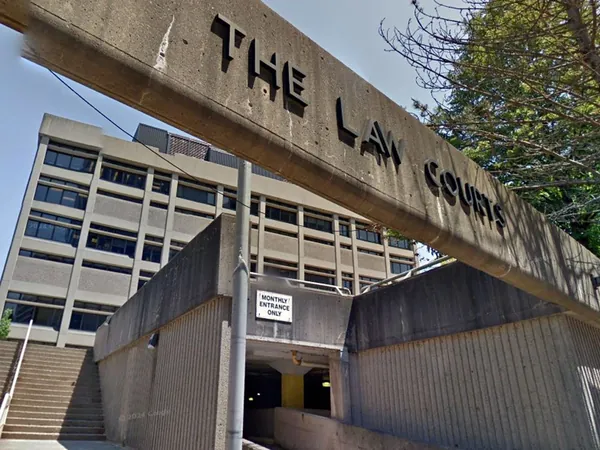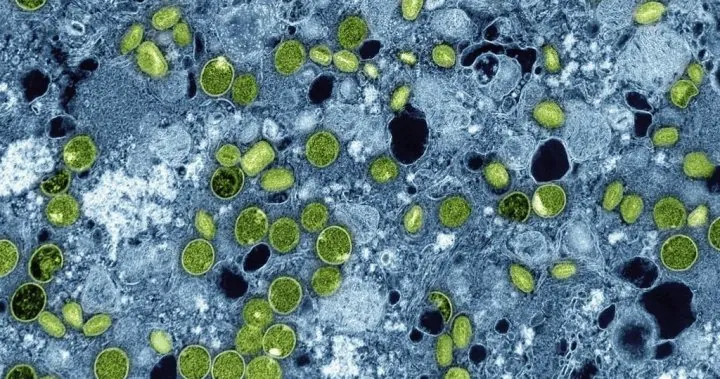
Shocking Ruling: Nova Scotia Mother Loses Custody of Tenth Child Due to Alarming Safety Concerns
2024-11-14
Author: Jacob
Overview of the Ruling
In a heart-wrenching decision delivered on November 13 by Justice Pamela Marche of the Nova Scotia Supreme Court, a mother from Nova Scotia has permanently lost custody of her tenth child, due to significant safety concerns that threaten the child’s well-being. This decision marks the culmination of a troubling pattern, as the mother, referred to in court documents as GR, previously had all nine of her other children placed in protective care.
Custody of Child N
The child, known in court only as N, was removed from GR’s custody immediately after birth and has since been placed with a foster family. The ruling asserts that returning N to her mother would pose a "substantial risk" to the child's safety. Justice Marche’s decision emphasized that it is in N's best interest to remain in the care of the Nova Scotia Minister of Community Services.
Background of GR's Parenting Challenges
The judge pointed out GR's troubling history of involvement with child protection services, which includes the permanent placement of several of her previous children. Her first three children were placed with grandparents, and from 2010 onwards, a series of children were put into the province's permanent care due to ongoing concerns. As recently as 2020, the ninth child was also taken from GR's care.
Concerns Raised by Community Services
Court documents reveal that the Minister of Community Services expressed serious concerns regarding GR’s ability to parent effectively, primarily due to mental health issues, substance abuse, and a history of family violence. The court noted GR's ongoing refusal to seek necessary mental health support, which has only exacerbated her situation.
Previous Attempts at Parenting Support
Despite having undergone various programs aimed at improving her parenting skills and managing anger, the judge found GR to be resistant to intervention, raising red flags about her capability to change. The court discovered that GR reportedly admitted to consuming alcohol during her pregnancy with N, and she has continued to deny any substance abuse problems claims made against her.
Incidents of Violence and Inconsistent Parenting
Incidents of violence linked to GR's lifestyle further deepened concerns. There was a notable occurrence where she and her sister were involved in a violent altercation, witnessed by her children. The police reported that both women were heavily intoxicated during this incident, which highlighted troubling surroundings for any child, especially N.
GR's Inconsistent Access to N
Community Services pointed out that GR’s access to N has been inconsistent, as she missed many scheduled visits, leading authorities to limit her contact with the child. In contrast, GR argued that she was treated unfairly, citing legitimate reasons for missing visits and claiming she completed alternative programming that she found more beneficial.
Cultural Considerations and Mother's Assertion
The mother, who identifies as Mi’kmaq, passionately asserted in court that it would be in N's best interest to be raised within their culture and expressed her unwavering love for her child. However, the judge echoed concerns that despite GR’s claims of sobriety, her long-standing patterns of behavior indicate that returning N to her custody would likely expose the child to continued risk.
Conclusion and Implications of the Ruling
As the judge stated, 'The minister’s concerns about GR’s ability to parent effectively remain valid—especially considering her history of trauma and ongoing exposure to violence.' The court has indicated that a pathway towards adoption for N is being considered, ensuring the child's safety and a stable future.
This ruling underscores critical issues surrounding child welfare, mental health, and the complexities of family dynamics. It raises essential questions about how society supports vulnerable parents while prioritizing child safety in dire situations. The judge's decision serves as a stark reminder of the grave implications when a parent's struggles directly impact their children's welfare.









 Brasil (PT)
Brasil (PT)
 Canada (EN)
Canada (EN)
 Chile (ES)
Chile (ES)
 España (ES)
España (ES)
 France (FR)
France (FR)
 Hong Kong (EN)
Hong Kong (EN)
 Italia (IT)
Italia (IT)
 日本 (JA)
日本 (JA)
 Magyarország (HU)
Magyarország (HU)
 Norge (NO)
Norge (NO)
 Polska (PL)
Polska (PL)
 Schweiz (DE)
Schweiz (DE)
 Singapore (EN)
Singapore (EN)
 Sverige (SV)
Sverige (SV)
 Suomi (FI)
Suomi (FI)
 Türkiye (TR)
Türkiye (TR)